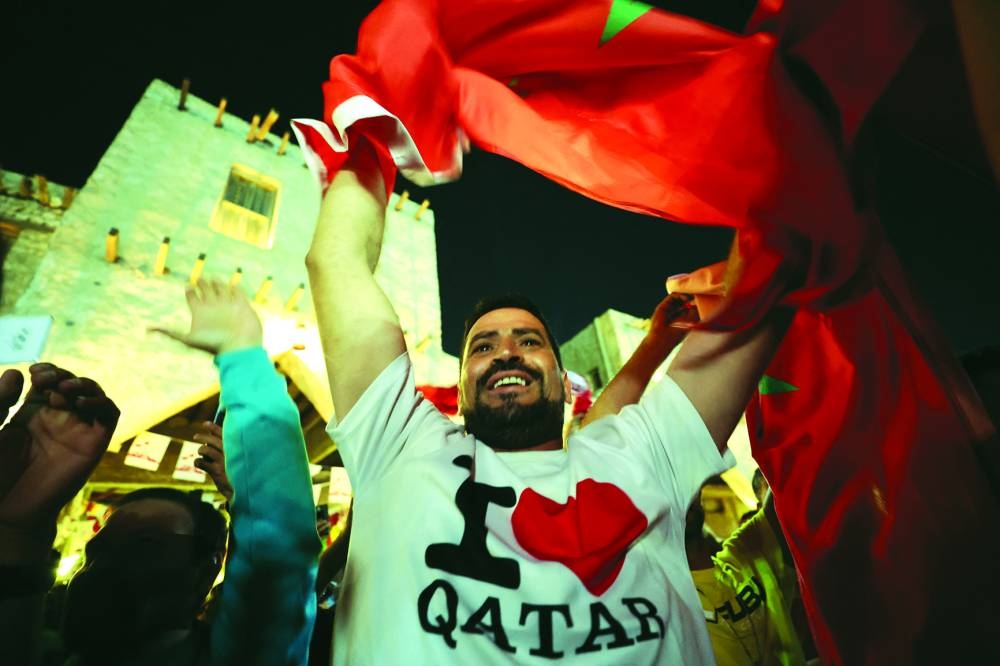With numbers exceeding all expectations, Qatar organised the FIFA World Cup 2022 from November 20 to December 18, 2022. It became the first Middle Eastern country to host an event as significant as the World Cup. The idea of an Arab country hosting the World Cup was once a mere dream for Arab fans, but Qatar transformed it into a reality and a unique event, leaving a lasting impression in the realm of Arab sports.
Qatar communicated to the world that the Arab region is rich in creativity, and its people are passionate about sports, especially football. This was evident in the organization of one of the most distinguished editions of the World Cup in history, which promoted the spread of football culture and expanded its base, according to the International Football Federation's statistics.
The World Cup featured 64 matches over a month, with the region embracing football as its common language. These matches took place in eight newly built stadiums: Khalifa International Stadium, Al Janoub Stadium, Education City Stadium, Al Rayyan Stadium, Al Thumama Stadium, 974 Stadium, Al Bayt Stadium and Lusail Stadium. These architectural masterpieces showcased Qatar's engineering creativity, evolving from concept models in 2009 to reality, and received worldwide acclaim. Their designs, which topped international press coverage, reflected Qatari identity and Arab symbolism.
Qatar fulfilled its promises by organising a historic edition of the World Cup, aligning with FIFA's goals to make football a medium of communication among people worldwide. The organisation excelled in hosting one of the largest sporting events in a beautifully orchestrated manner, encompassing planning, fan care, and meeting all requirements for an enjoyable viewing experience for international football fans.
Qatar utilised the latest methods for transporting fans to and from the stadiums, including the Doha Metro, and harnessed all capabilities to serve the event and attendees. This included implementing laws allowing fans to support their teams and express their cultures freely.
The World Cup in Qatar was notable for the absence of riots or public confrontations, unlike previous World Cups and European competitions. This peaceful atmosphere resulted from effective organisational control, including allocating special areas for each team's fans and a common area for all, creating an elegant competitive environment.
Qatar's organisation of the event emphasised cultural legacies, customs, and traditions, ensuring women's freedom and comfort in stadiums. Women and families enjoyed a harassment-free environment, making this World Cup exceptionally suitable for them. The significant presence of female fans and families, documented by FIFA and international broadcasters, highlighted this inclusivity.
In addition to showcasing families of Argentine players and their children celebrating on the field, the tournament honoured the role of mothers in athletes' lives, with some appearing on the field for the first time in World Cup history.
Moreover, Qatar introduced a new culture in organising events, characterised by stringent safety measures, the use of technology to enhance sports, and providing top-notch medical services through mobile ambulance units in all stadiums.
According to fan experiences worldwide, the World Cup in Qatar offered a unique insight into the Arab region's diverse and converging cultures, a message of peace and coexistence documented by FIFA.
Qatar also focused on the humanitarian aspect, highlighting East-West dialogue during the opening ceremony. The Al-Bayt Stadium set the stage for showcasing the Arab community's embrace of the world, with a focus on coexistence and peace, and the welcoming nature of the Qatari people.
This 22nd edition of the World Cup allowed fans to experience multiple matches in a day, thanks to the proximity of the stadiums and ease of access, catering to a diverse audience, including those with special needs and sensory impairments.
The Qatar edition saw FIFA deploying the latest technologies to combat racism and protect players from online insults, through a special app monitoring social media posts before and after each match.
Despite initial skepticism about hosting the tournament in the Arab region, Qatar organised a successful edition that surpassed expectations, as confirmed by two-time World Cup winner Roberto Carlos in his comments to QNA.

Morocco fans celebrate in Souq Waqif after unfancied Morocco qualified for the knockout stages. (Reuters)
